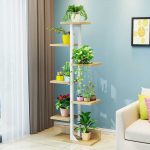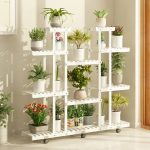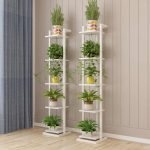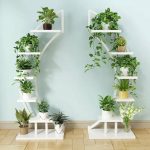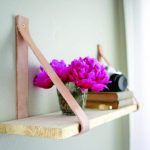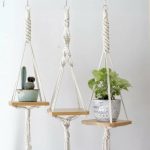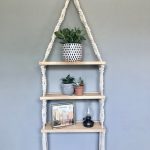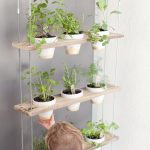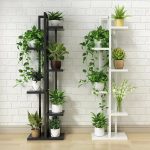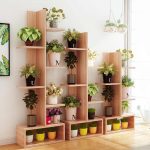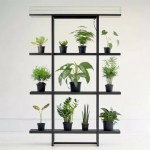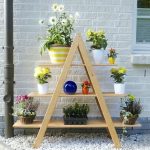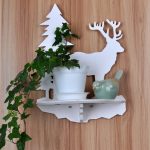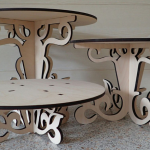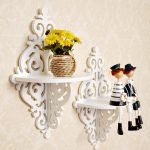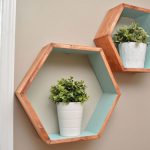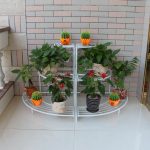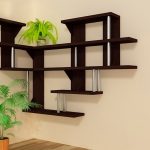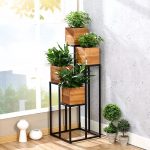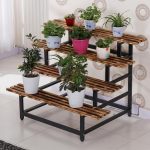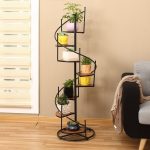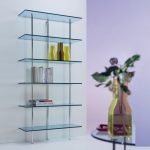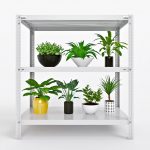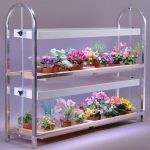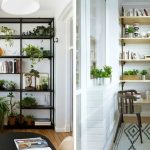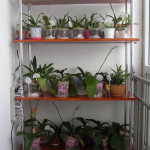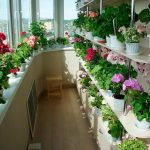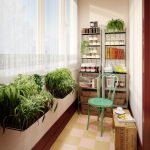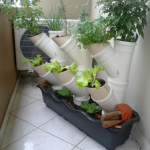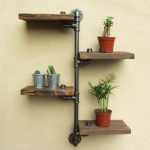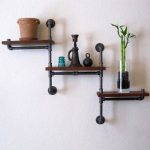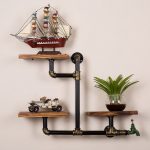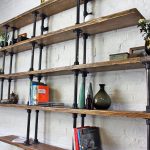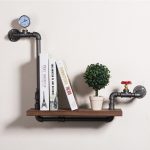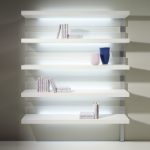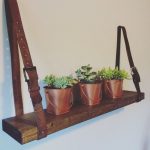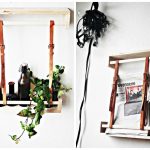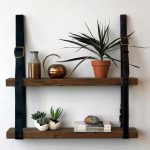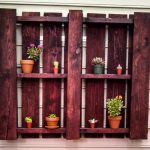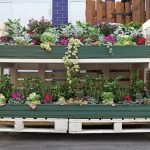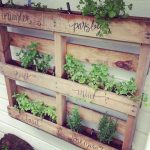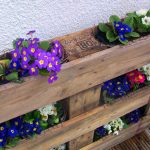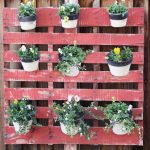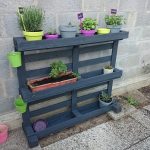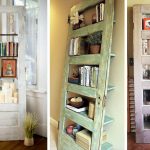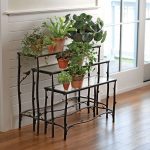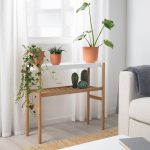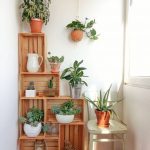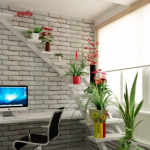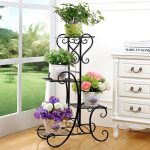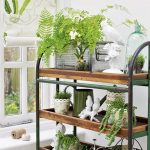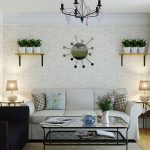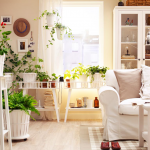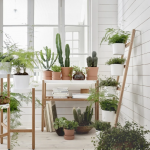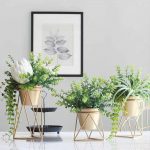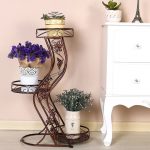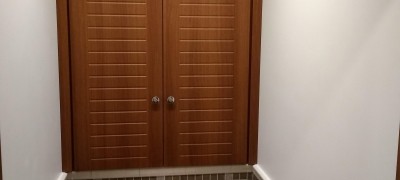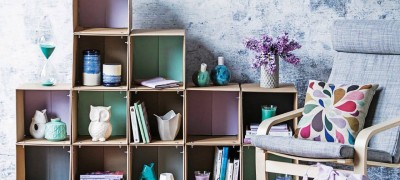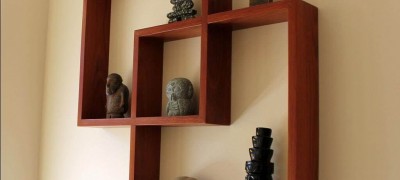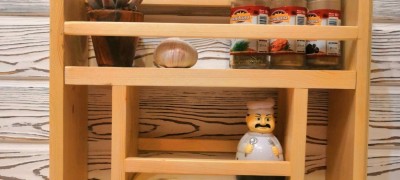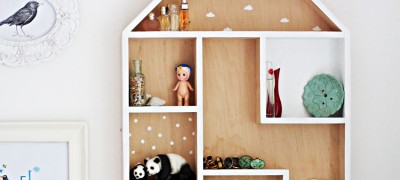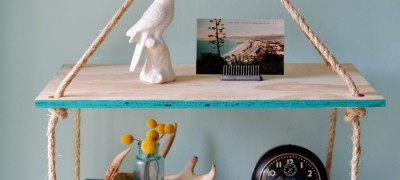We make shelves for flowers with our own hands
Indoor plants are not only able to freshen the air, but also provide a special kind of psychological comfort in the room. The location of flower pots, as well as their combination with adjacent furniture and general interior style, plays an important role in this. For a competent arrangement in the room of "natural beauty" in the design set there is such an attribute as flower shelves.
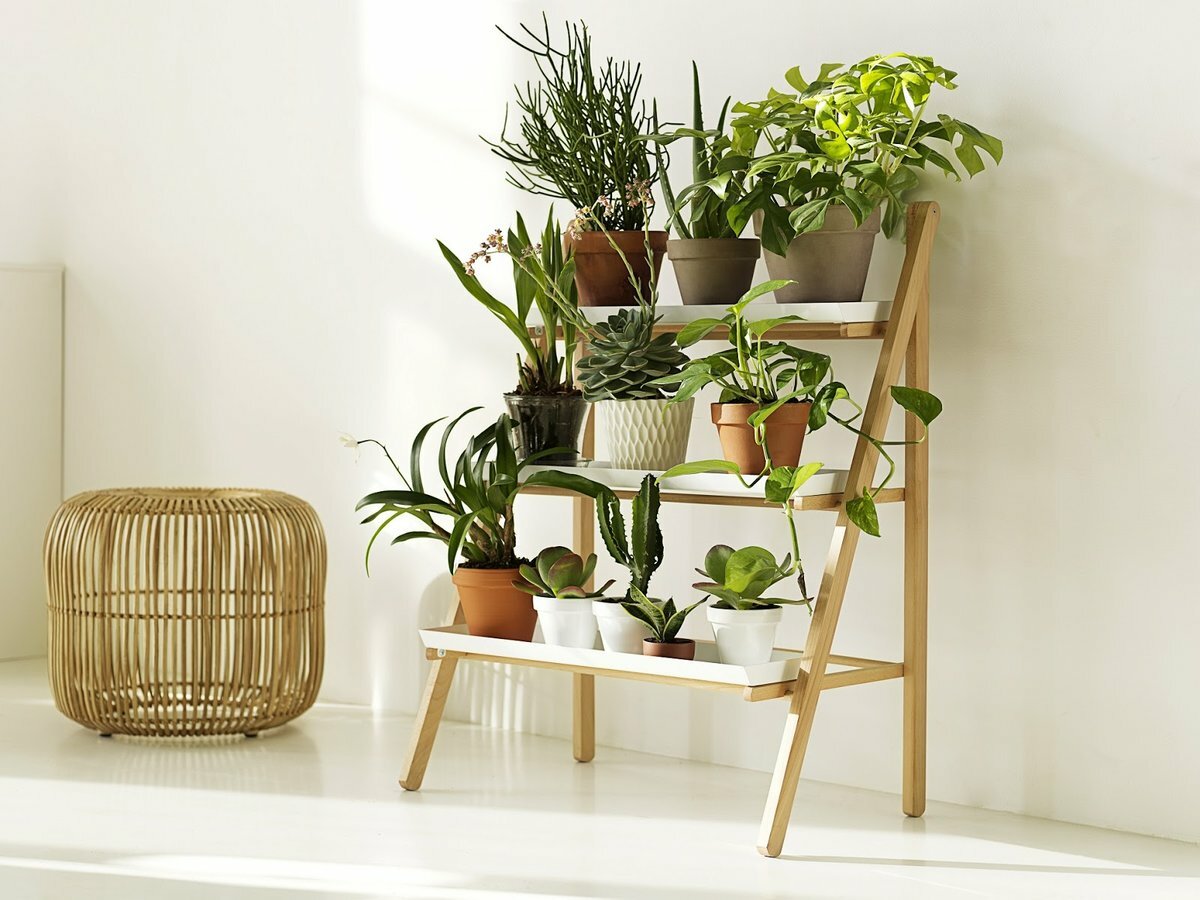
Varieties of flower shelves
Modern design culture has spawned a huge number of types of flower shelves. There is a wide variety of these elements that are significant for furniture interiors.
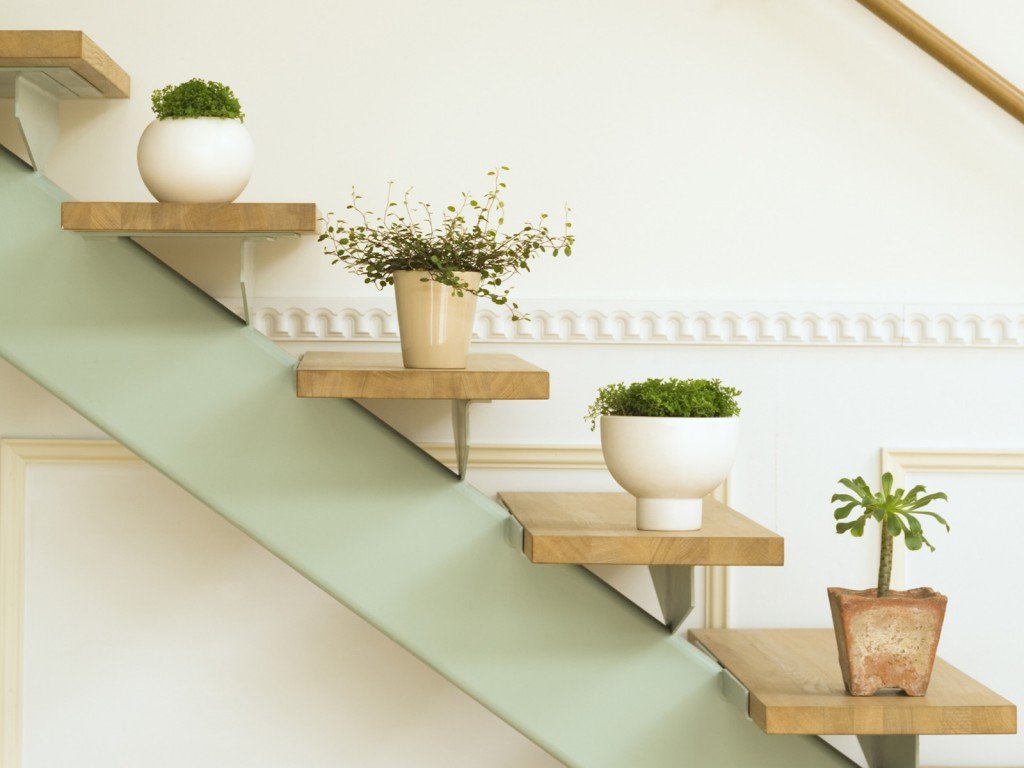
They can be conditionally divided according to the following criteria:
- By the shape of the shelf structure. There are types such as straight, angular, curly and multi-level. Each of these forms has its own design features.
- By installation method. It is customary to distinguish between three installation models: pendant, wall and floor. In accordance with the designation, such shelves are suspended, mounted in walls or used as the main point of support for the floor surface.
- By material of manufacture. Shelves can be created from various types of wood, metal, plastic, glass, ceramics. Also exotic stands, erected by concreting or plastering, can be ranked among the flower shelves.
- By mutual positioning. Depending on the location in relation to each other, it is customary to divide the shelves into single and group ones. So, in group compositions, the shelves are located close to each other, and in single ones - at a considerable distance.
- By color and design style. Each interior style has a specific color scheme. Flower shelves are also forced to follow the rules of a competent room design.
How to make shelves with your own hands
Before you start creating a drawing of the future shelf, you must first decide what kind of constant load the flower shelf will experience. Craftsmen often have to abandon very successful design solutions due to the instability of some supporting surfaces to loads.
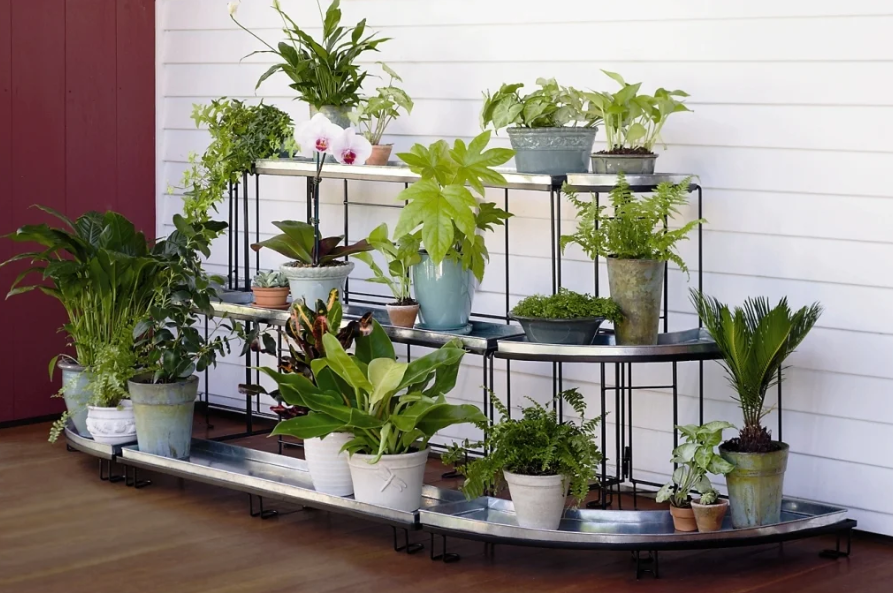
Even floor structures often have to be additionally fixed to walls, ceilings or to supporting elements specially erected next to them. The estimated weight of the filled shelves plays an important role in the selection of the fastening method, as well as in the selection of the shape, size, material and location of the shelf. After completing the theoretical training, the stage of the direct construction of the shelf structure begins. Both an experienced master and an amateur can make a shelf for flowers with their own hands.
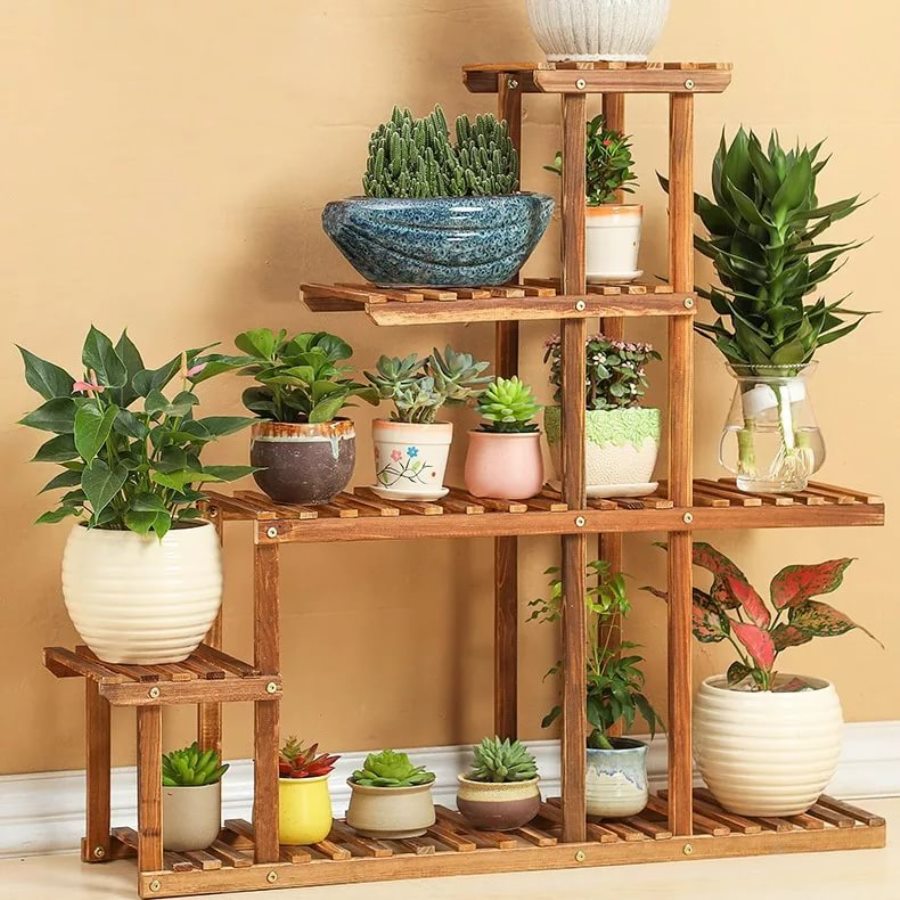
Wooden shelves
The most common type of homemade flower shelves are deservedly considered wooden products. Usually, for handicraft work, boards and panels are selected from inexpensive varieties of wood, as well as from even cheaper chipboard, MDF and laminated chipboard.Noble woods are used only by professional carpenters who know how to work with expensive and problematic material.
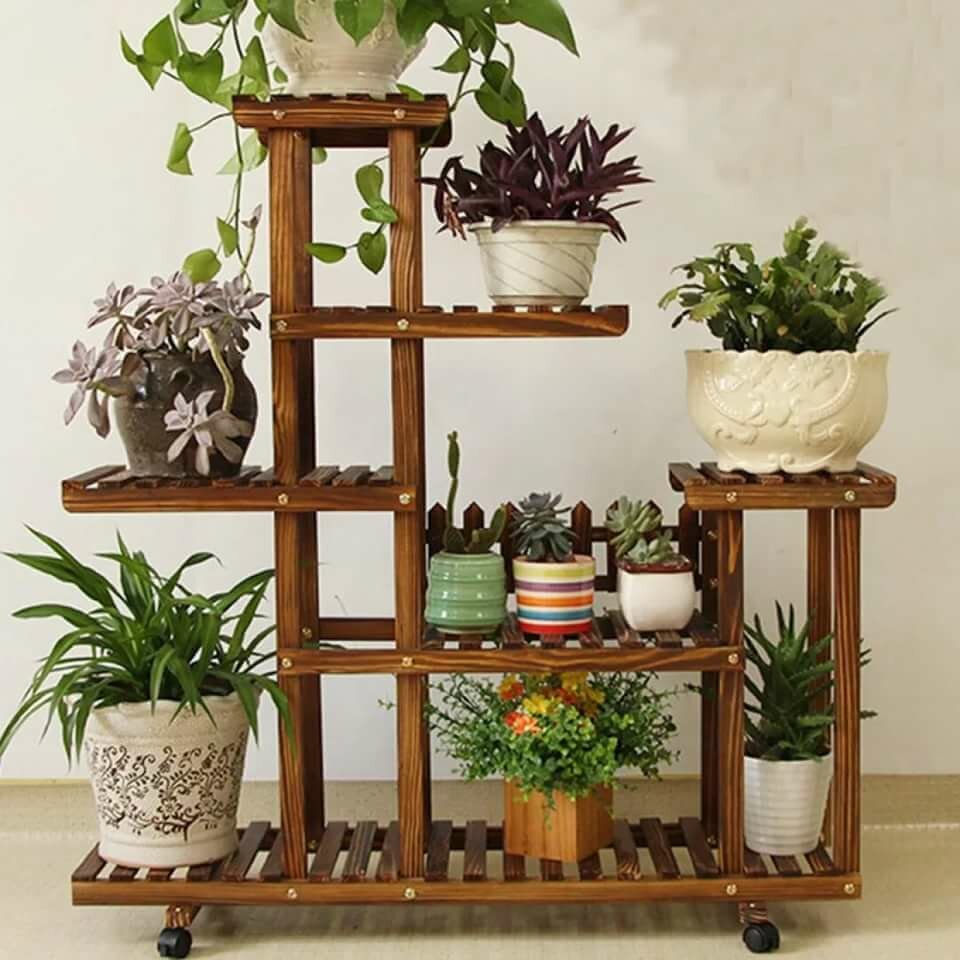
The peculiarities of wood force the craftsmen to take into account the following points when creating and positioning shelves:
- Wood is a fire hazardous material. Even a shelf varnished with a fire-resistant layer should not be installed near sources of open flames or sparks (gas stove, fireplace, electrical panel, electrical wiring assemblies).
- In a humid environment, the tree damp. As a result, the self-weight of the shelf increases and the fasteners begin to experience greater stress. Moisture-resistant varnish, paint or laminated film can protect wood from dampness.
- In a dry place, the tree dries up and cracks over time. As a result of prolonged moisture loss, the shelf is deformed. Protective varnishes and other layers are not able to fully retain moisture in wooden structures. Therefore, it is not recommended to install such shelves near a battery or other constant heat source.
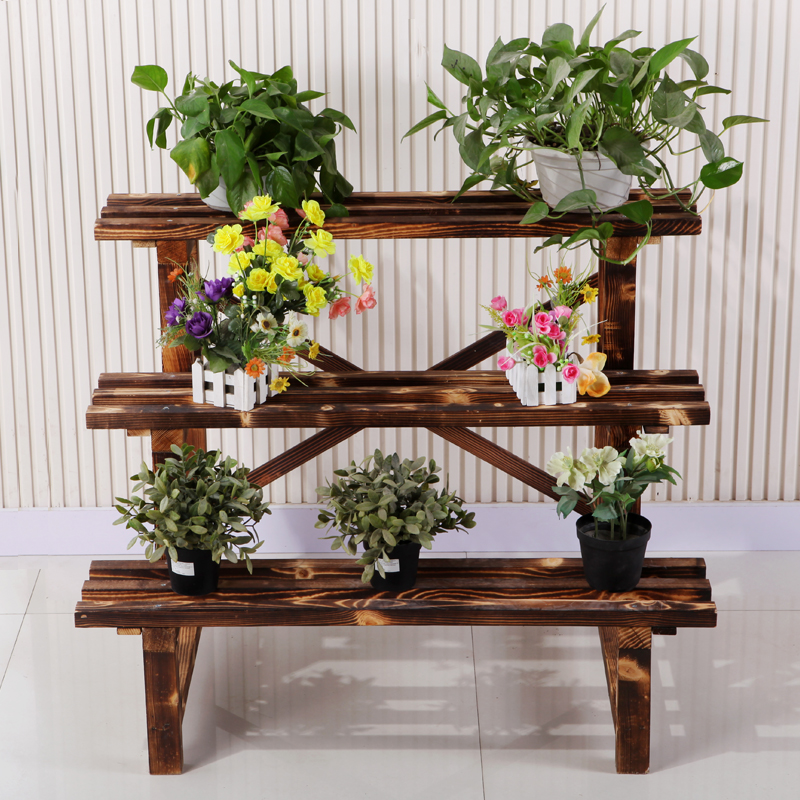
As tools for working with wooden shelves, craftsmen prefer a perforator, a screwdriver, a hammer, a measuring tape, pliers, a hacksaw or a grinder with a disc for wood. From accessories, nails, screws, anchors, spacers, metal brackets and various corners are used.
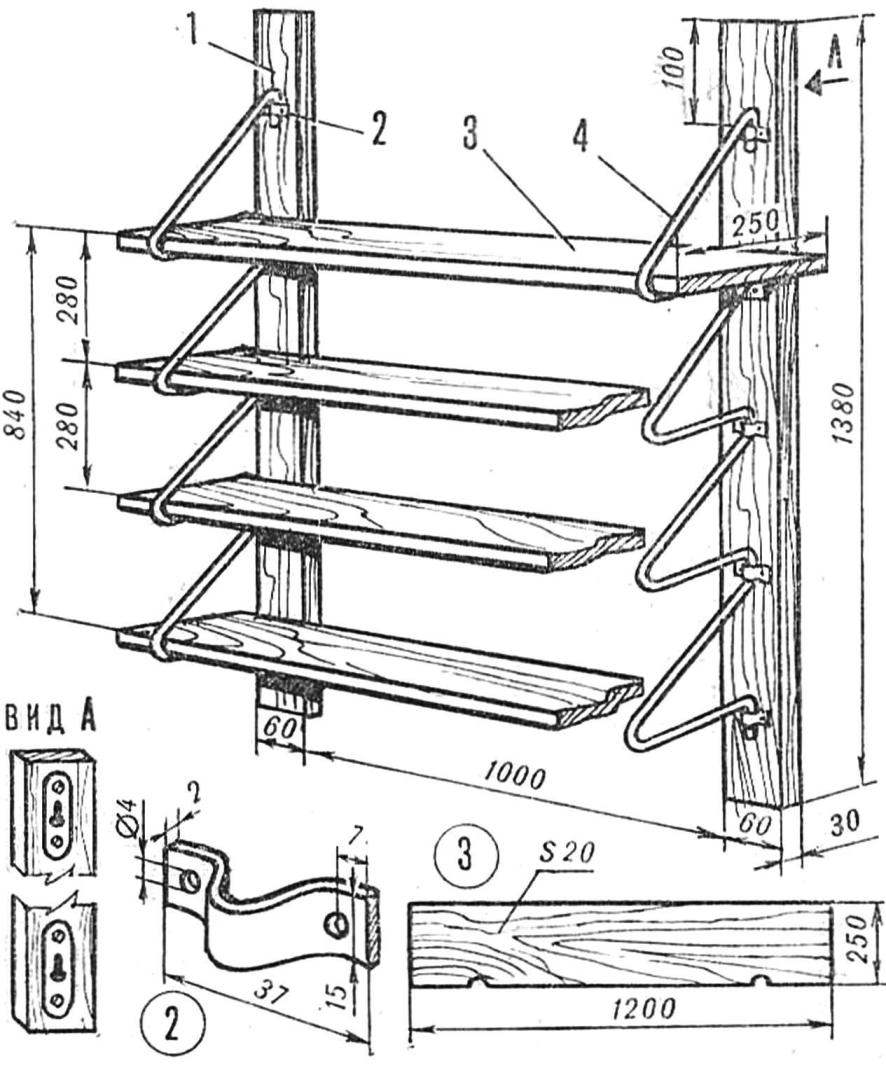
The most primitive scheme for making a wall shelf looks like this:
- 4 holes are drilled in the wall. Spacers for anchors are laid in them.
- Brackets are superimposed on the two lower holes, which are rigidly attached to the wall with anchors. If the shelf is long or massive, the number of bottom holes with brackets can be more than two.
- Brackets with a ring or other element for attaching two ropes, cables or chains are installed in the upper holes.
- Metal corners are installed on the two outer corners of the shelf.
- The part of the shelf adjacent to the wall is pushed onto the lower brackets, and the opposite edge with the corners is connected with ropes to the upper brackets.
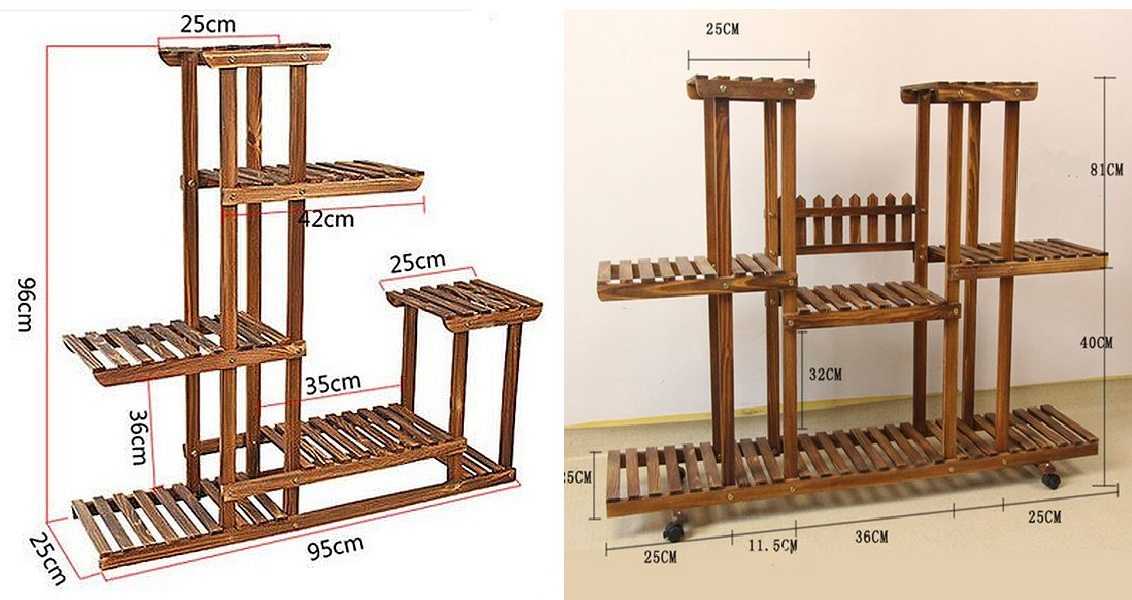
With a relatively good command of the tools, the entire installation of such a wall-mounted wooden shelf takes no more than 15 minutes.
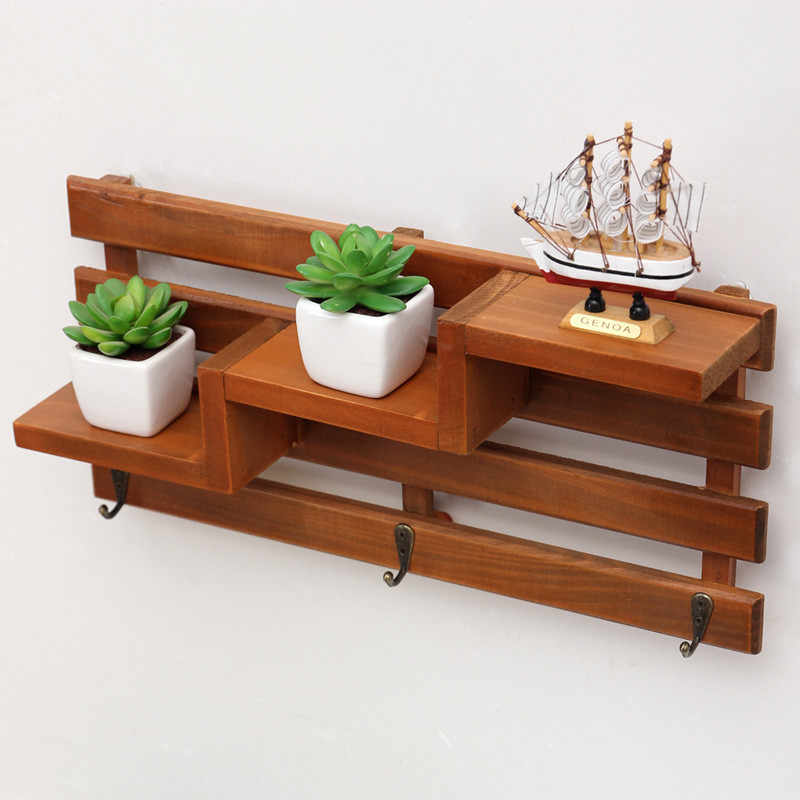
Wall shelving
Wall shelving is most often used to create group compositions. At the same time, it is taken into account that light-loving flowers need constant solar illumination, and they must be placed on the upper shelves of a multi-tiered structure.
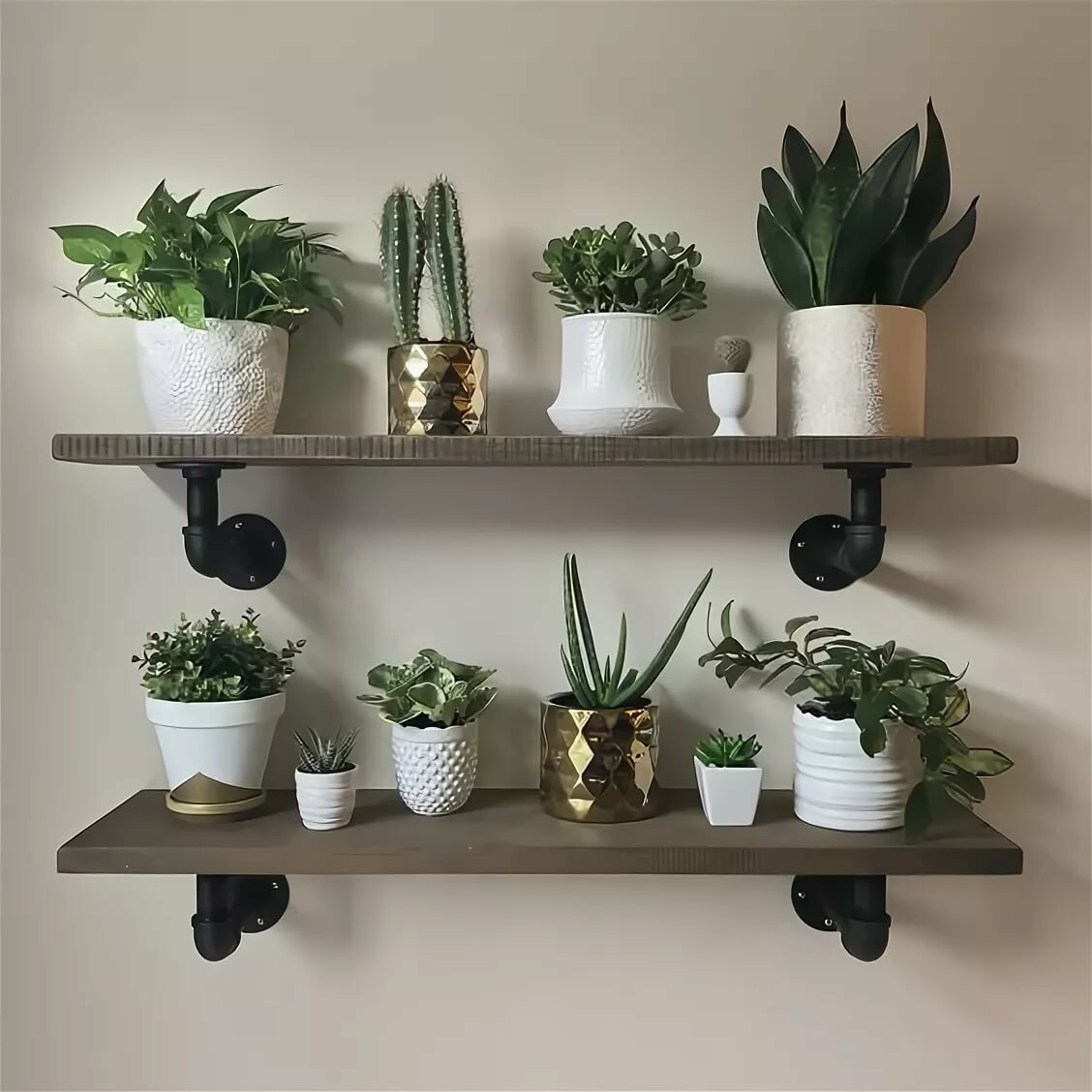
The main material for shelving is often wood and plastic. Prefabricated elements for plastic shelving are easy to cut by hand and find available hardware for fastening in the store. It is preferable to lay the vertical profiles (or bearing racks) on each shelf tier in line with the profiles of the lower and upper tiers. Chaotic installation of the profiles leads to uneven distribution of the load and to excessive stress on the individual elements of the wall mount.
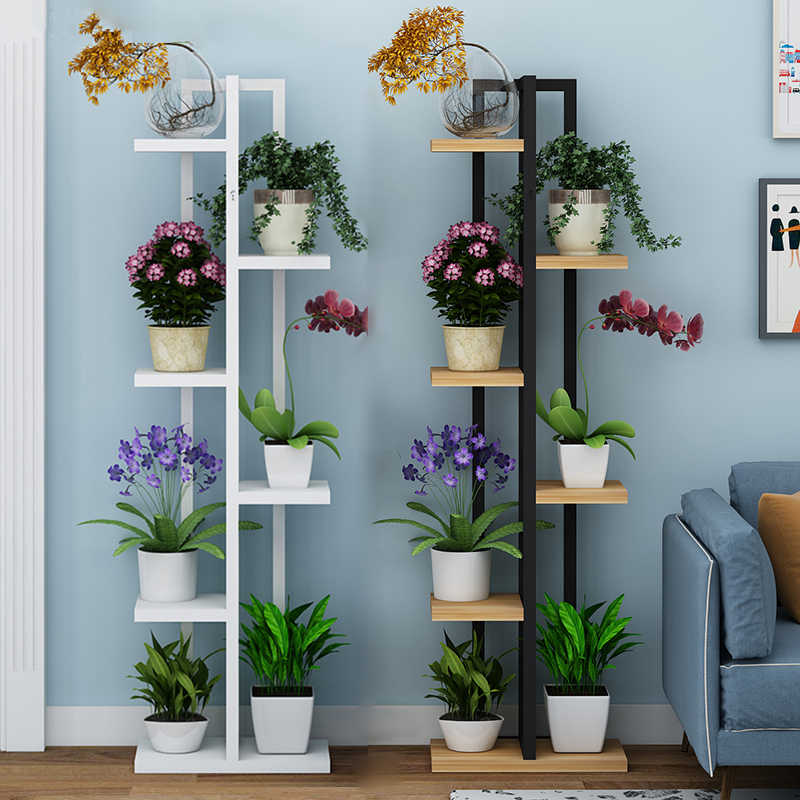
Corner shelves
The basis for the installation of corner structures is the principle of support on the vertical joint between the walls and on the adjacent surfaces. For home assembly of corner flower shelves, it is recommended to choose an uncomplicated T-shaped mounting design.
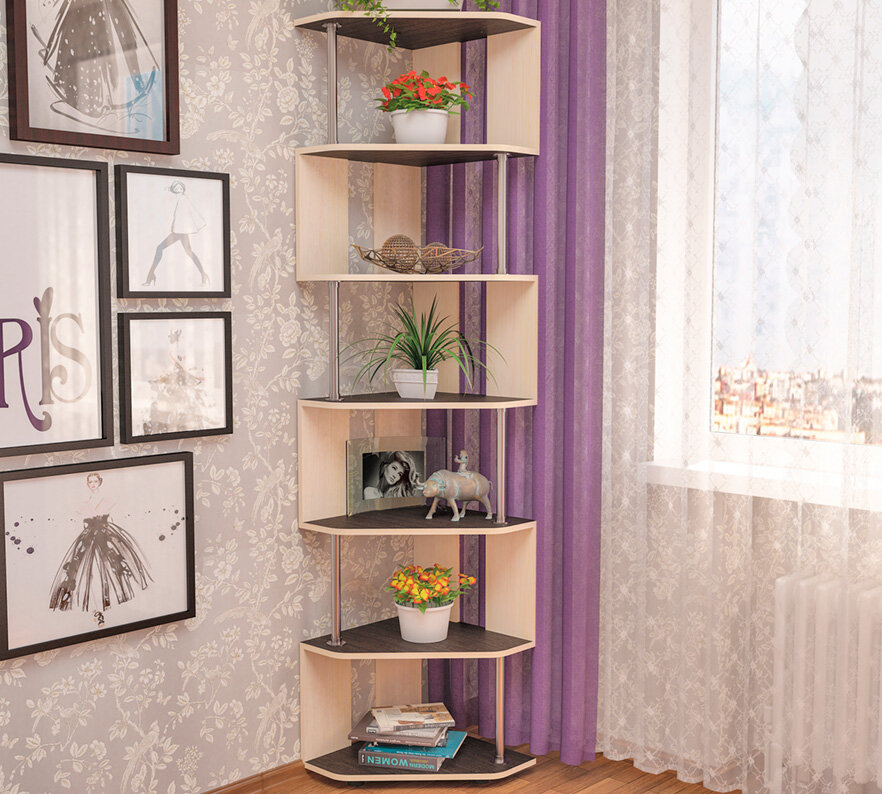
The structural feature of this construction method is considered to be a vertical bearing rack, launched along the corner between the walls. It acts as a kind of "trunk" from which there are horizontal branches-shelves. Moreover, the longest "branches" are installed from above, and the lower shelves become shorter with each tier. The upper long hat is made of combined horizontal shelves and gives the design a resemblance to the letter "T". Of course, for watering flowers, it is more practical to make an inverted T-shaped corner structure. However, this solution unfavorably changes the visual space and, when watering, contributes to injury to the lower (elongated) shelves.
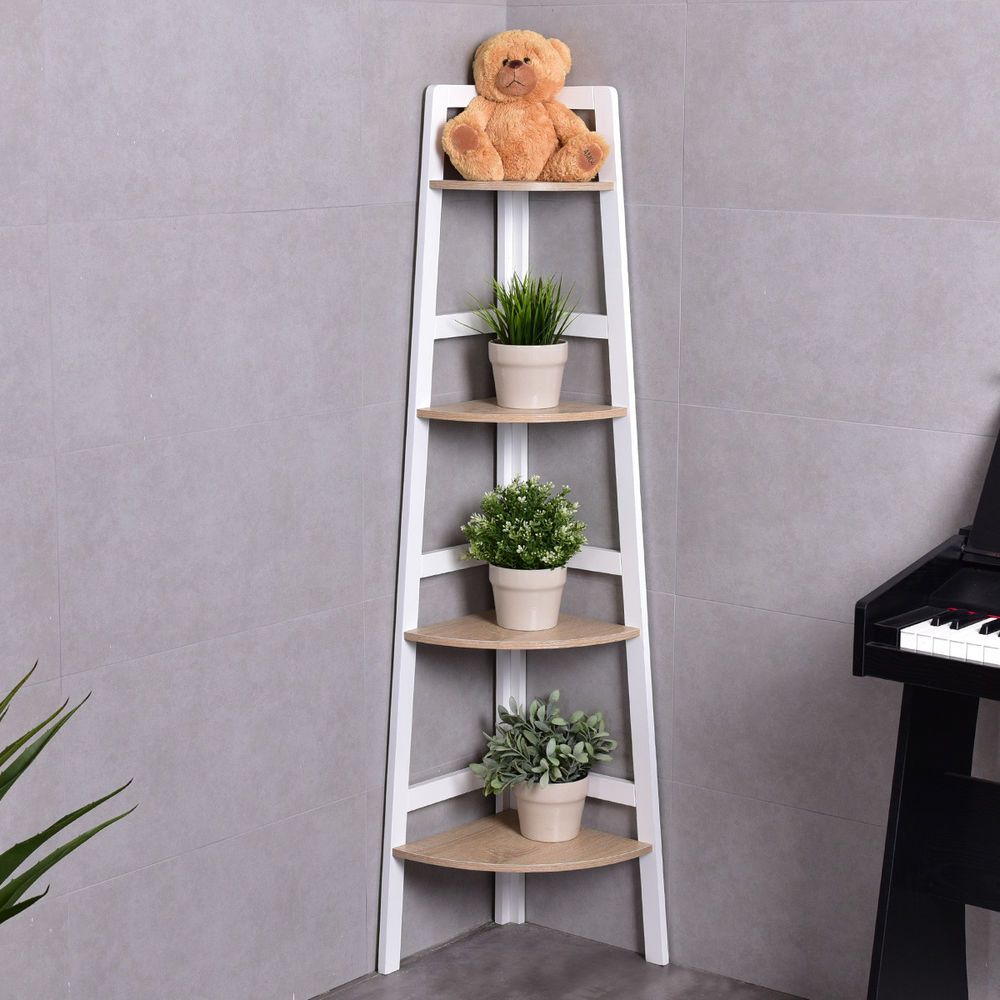
Suspended
Suspended structures use suspended cables, ropes or chains as the main support. It is on them that the shelf element under the flower pot is held.
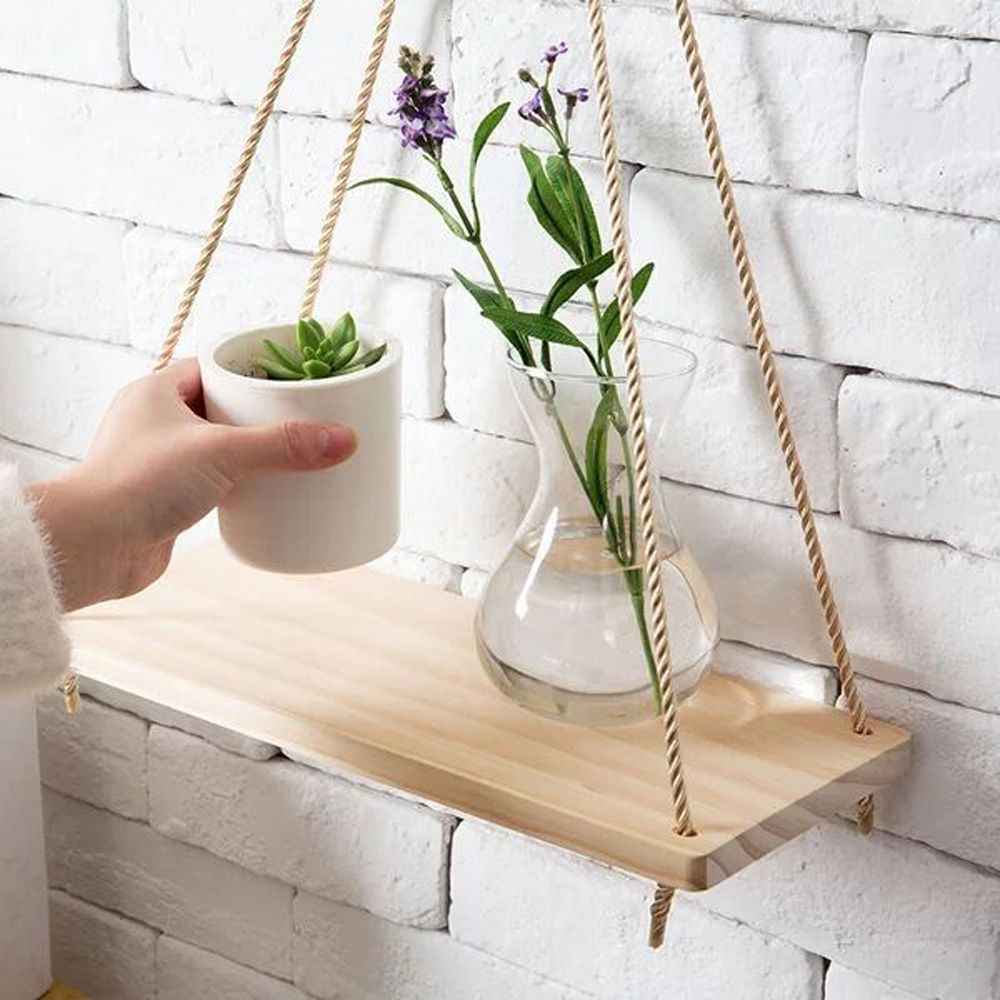
Suspended systems are usually divided into the following types:
- With a single top center. All four cables, on which the shelf is held, start at one point. This can be a common bracket on a wall or ceiling.
- With different points of support. Each cable comes out of its own bracket. In addition to stationary positions, the upper fasteners can be installed on mobile U-shaped frames, reminiscent of a children's swing.
- Combined. One part of the shelf is supported by wall brackets, and the other part is supported by hinged elements.
By the way! Despite the external complexity, hanging shelves are easier to mount than rack constructors.
Floor standing
If the flower pot is heavy, then the choice of the master is not so great. Under such conditions, preference is given to floor structures. The lower platform can be either stationary or mobile (on wheels). Group compositions are performed in the form of various shelves. Huge flowers in massive pots are "packed" into individual structures with reinforced profiles.
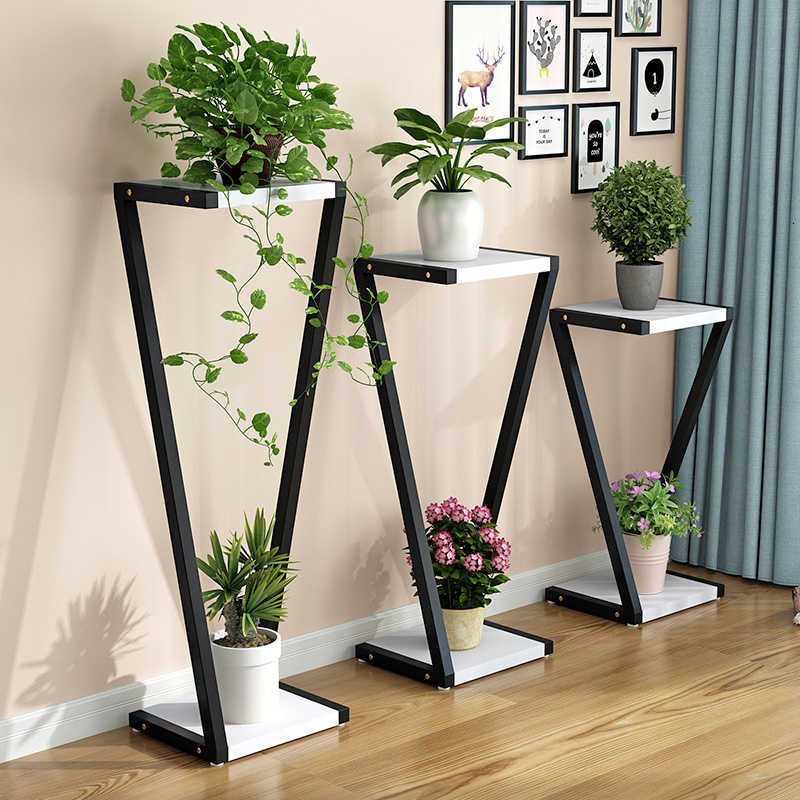
On the windowsill
With a low total weight, the multi-tiered structure can also be mounted on a window sill. This ensures that all plants have equal access to sunlight. The proximity to the window makes it easy to not complicate the design. The structure, as a rule, has no more than three tiers and is designed to accommodate light pots with flowers on it. All the tiers above the windowsill have a fulcrum in the form of 2 or 4 strong posts, brought out through the holes made in the windowsill.
Sometimes the hinged method is used. The main advantage is that by making the shelf yourself, its cost will be much less than the fastening.
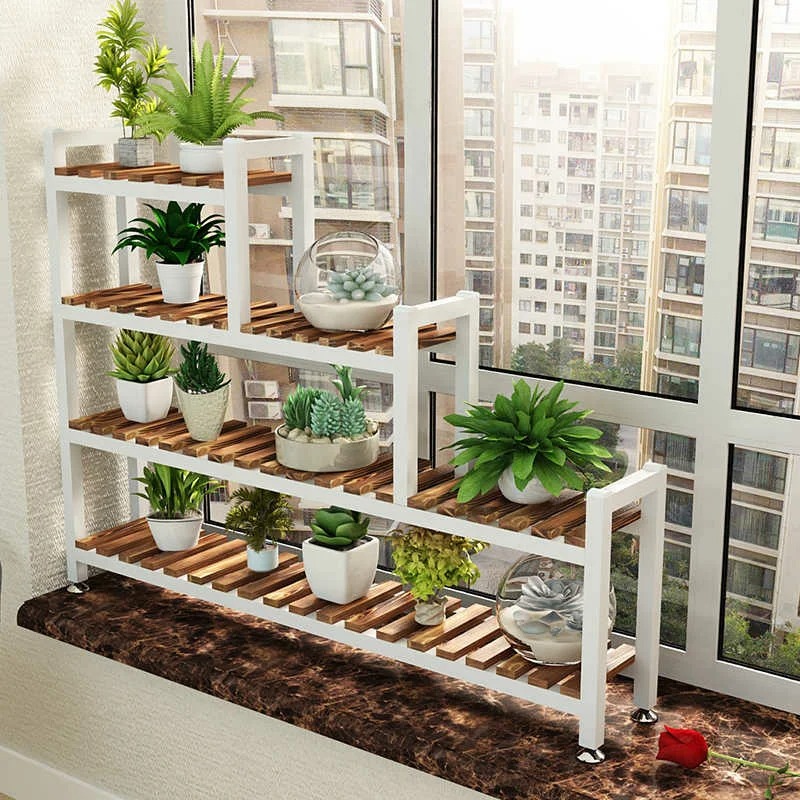
Important! It is not allowed to use the window sill itself as the main support. Also, for safety reasons, the ends of the vertical posts should be brought out of the line of the window opening. In case of active shaking (earthquake, accidental impact on the bottom of the racks, etc.), the racks sticking out in the opening can bring down the entire rack towards the window.
Bookcase
The bookcase is recognized as the simplest and most easily erected design for flower pots. It is a pyramid of several shelves enclosed in a primitive frame. The assembly of a conventional wooden shelf is carried out as follows:
- The two vertical beams and the lower horizontal are assembled into a triangle. According to their dimensions, a second identical triangle of beams is assembled.
- The triangles are fastened to each other by strips of the same length, forming a semblance of two staircases fastened into a pyramid.
- Shelves are being erected inside the resulting "pyramid". The surface under the flower can be assembled from a solid board or from boards filled with a continuous method.
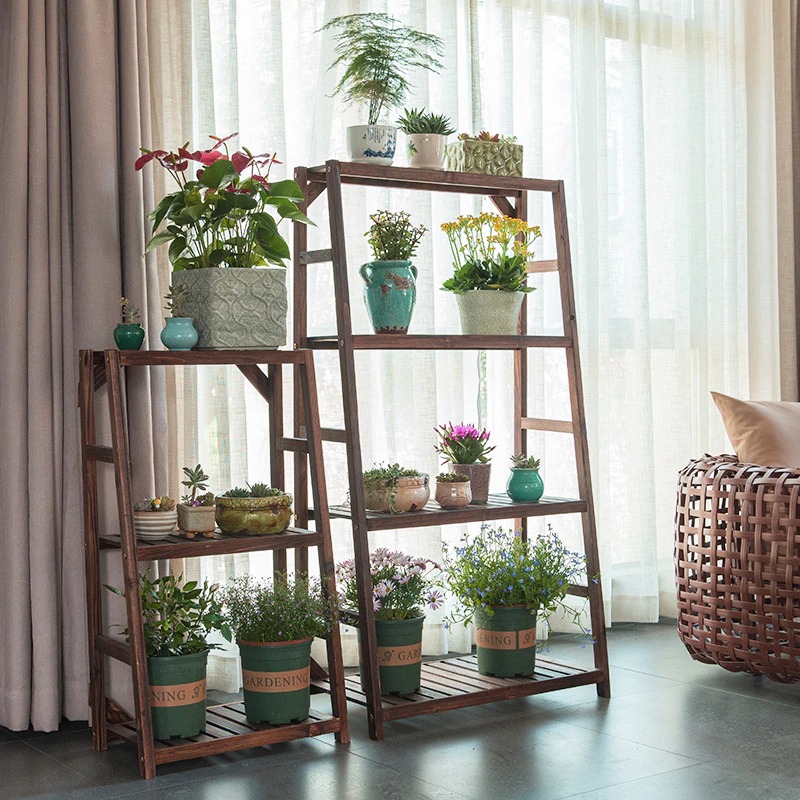
According to the laws of geometry, the shelf at the base will be the largest in area, and the one at the top will be the smallest. The only requirement when creating such a pyramid is that the strength of the load-bearing beams and shelves matches the expected loads on the finished shelf.
Video: how to make a vertical flower shelf
